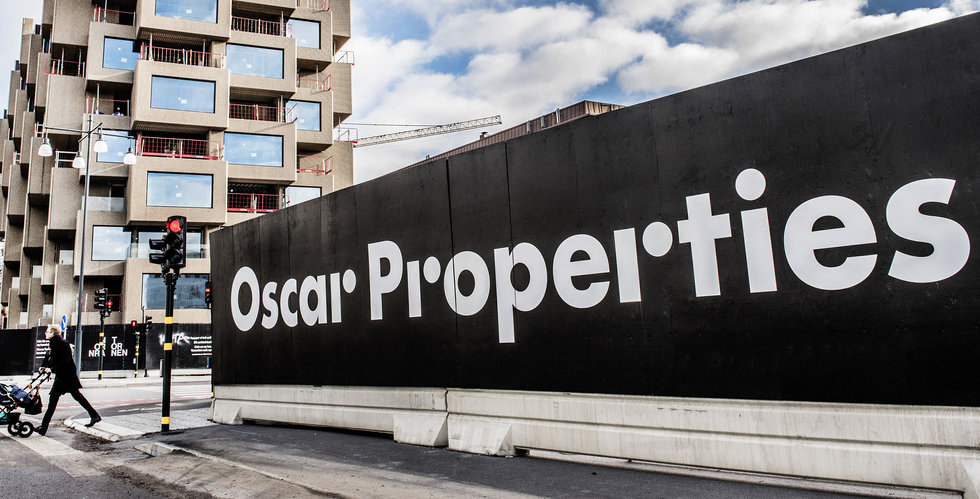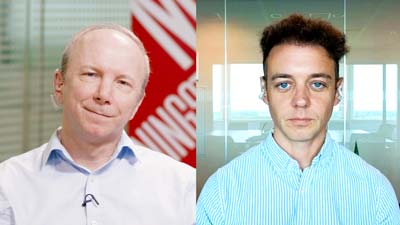Business Strategy and Outlook | 09 Jun 2020
Buoyed by growing demand for radiotherapy (RT), we think Elekta -- as well as its main competitor, Varian -- should enjoy strong sales momentum for the next decade. The RT industry has consolidated substantially over the past decade, and the two companies are in a prime position to benefit from a market we believe will be growing in the midsingle digits.
Although RT is considered a ubiquitous form of cancer treatment, its adoption still has room to increase. RT is highly effective in treating certain cancers at a relatively low cost, but its penetration rates have long been hindered by its side effects and sizable up-front costs. The latest advances in technology, allowing for higher dosage and more precise delivery of radiation, and growing awareness of the benefits of radiotherapy could significantly expand the marketplace.
The RT opportunity is particularly attractive in emerging markets, where its utilization rates significantly trail those in the developed world. With demographics and Westernization of emerging markets driving increased cancer incidence, demand for RT has already accelerated significantly. Yet there is still a massive gap between the current RT installed base and what is needed to meet growing demand. We estimate that this market, which is currently roughly 5,000 linear accelerators, can support twice as many platforms without approaching the developed world's standard of care. We believe that both Varian and Elekta stand to benefit from these trends. Our forecast calls for close to 95% of the world's RT equipment installations to be provided by these two companies over the next decade.
Much of our thesis on Elekta rests upon its Unity platform, which could materially improve precision of RT, thus increasing its effectiveness and reducing healthy tissue exposure. So far, with still-limited data, Unity is delivering on its promises, and the company has just reached its milestone of 75 orders for Unity by mid-2020. We expect Elekta to deliver high-single-digit top-line growth and double-digit earnings growth over the next decade--above the device industry averages--on the strength of this platform.
Fair Value & Profit Drivers | 09 Jun 2020
Our fair value estimate is SEK 133 per share. We believe the entire industry has a mid-single-digit growth trajectory, but Elekta's more favorable geography mix, strong positioning in software, Unity prospects (including 75 orders through mid-2020), and currently smaller share support our slightly higher forecast of 7%-8% growth per year.
The company is an oncology instrumentation pure play. Within the core oncology business, Elekta's exposure to the mature U.S. market is notably lower than that of its main competitor, Varian. This, combined with a strong positioning in emerging markets, should allow Elekta to capture roughly 40% of all global orders, increasing its market share to 35% by the end of 2025. We anticipate that Elekta's global installed base will grow to close to 6,000 linacs by the end of our forecast, still trailing Varian's base of more than 9,000. We also believe the firm's software and services business will grow at roughly low teens rates over our forecast; this should mitigate the impact of pricing pressure that will be likely on the hardware side.
While the U.S. market has been a huge disappointment for Elekta, we're seeing some evidence of green shoots primarily driven by the company's contract with GenesisCare. This agreement, coupled with continuous strong Unity uptake should allow the company to achieve low-single-digit top-line growth in the U.S. in the next few years. We expect the firm's EBIT margin to continue improving and eventually reach 25%.
Scenario Analysis | 09 Jun 2020
Our fair value estimate is sensitive to our margin forecast and the Unity launch. When incorporating rather pessimistic assumptions regarding Unity, as well as continuing weakness in the U.S., resulting in low-single-digit top-line growth and almost no operating leverage, we arrive at a price of SEK 85. This price implies a roughly 2 times sales multiple, well below historical levels. The company's wide economic moat adds roughly 15% to our valuation, which is consistent with our methodology. The upside case, which bakes in a rather successful Unity uptake and incorporates moderate improvement to our base-case operating-margin assumptions, arrives at a fair value estimate of SEK 171. Based on this dispersion of cash flows in our scenarios, we assign Elekta our medium fair value uncertainty rating.
Economic Moat™
Globally, only a few companies are involved in RT, with Varian and Elekta accounting for the lion's share of all new installations following Siemens' exit from this market in 2012. The market for RT equipment is characterized by very high barriers to entry owing to significant intellectual property and technological know-how and high switching costs that arise from significant training costs and disruption risk. What started a few decades ago as a rather fragmented field has now evolved into essentially a duopoly; with virtually no new entrants for more than a decade, the main two players have built durable franchises and wide economic moats around their businesses.
A combination of a high Herfindahl ratio, significant barriers to entry, and moderate degree of rivalry positions RT favorably relative to several other device industry segments. Despite some potential for pricing pressure in emerging markets, where customers tend to be more cost-conscious, we consider the degree of rivalry between the key players as moderate and don't anticipate the two firms to engage in cutthroat, value-destroying price wars. Though price points for the hardware in emerging markets may end up being lower, the opportunity to upsell these customers should eventually offset initial discounting. Further, a sticky customer base and a razor/blade business model should offer ample opportunities for high-margin/high-return aftermarket sales. With the entire RT market expected to grow in the midsingle digits, there are no strong incentives for both firms to compete aggressively on price.
Varian is the largest RT manufacturer, with more than 50% market share globally and an even more dominant position in the U.S., controlling more than 70% of all installations. Elekta is the second-largest player, with roughly one fourth of the world’s RT installations. We expect the field to further concentrate, as the vast majority of replacement installations and greenfield are expected to go to either Varian or Elekta. Switching costs should increase further as a result of a stickier customer base and more sophisticated technology (hardware and software), and barriers to entry should rise further. Both companies are investing in the next-generation technology (proton and AI RT for Varian, MR/RT for Elekta), which should solidify their positioning as premier providers of radiotherapy for the foreseeable future. Our expectation for the global market share in platform installations (95% going to either Varian or Elekta) reflects our belief that these two firms have the most compelling offerings in the marketplace. We award both companies wide economic moat ratings, which are also supported by their robust returns on capital.
Moat Trend
Though there are several moat sources that we consider to be strengthening, mainly switching costs and the emergence of network effect, the two firms' positioning relative to each other is fairly stable. Switching costs are already strong, thanks to the long shelf life of linacs (the average life span of a machine is 8-10 years depending on the customer), significant price tags, and training costs associated with the RT equipment. Furthermore, without a significant body of academic and clinical data (intangibles moat source), a new entrant in this space has no chance against established players, given the life-saving nature of these machines and high risk to operators.
Even proton therapy, while potentially a very intriguing treatment option, would only account for a small portion of procedures, even in best-case scenarios where its adoption is expected to grow dramatically over the next decade. The oncologists’ familiarity with software is also an important deterrent to competitors, and development of treatment planning and "sharing" software has potential to further entrench existing competitors and create a network effect that would give Varian and Elekta the edge in getting greenfield installations. However, with the vast majority of new orders split between these two firms in our forecast, their stronger position relative to the remainder of the field becomes less meaningful versus the head-to-head comparison, where we view competitive dynamics as stable. The two firms' inroads into next-generation therapies (proton and MR/RT) are still in early stages and unlikely to meaningfully shift their relative positioning. Thus, both firms carry stable moat trend ratings.
Risk & Uncertainty
Our key concerns with the RT industry's future are reimbursement trends and the replacement cycle in the U.S. market, slow adoption of RT in Western Europe, and aggressive competition in the emerging markets. The Centers for Medicare & Medicaid Services reimbursement rates have been a mixed bag for the industry. As long as the two companies continue to demonstrate the effectiveness of RT, we anticipate that CMS should be rather friendly to the industry, given the low cost of RT compared with the overall cancer treatment industry. However, demand patterns in the U.S. correlate with CMS' decisions, so any cuts could endanger long-term trends. Widespread adoption of MR/RT is also contingent upon Elekta receiving favorable reimbursement from CMS. Further, future U.S. demand will be fairly lumpy, given significant consolidation in the space and the growing presence of large hospital networks.
In Western Europe, much of our forecast hinges on the ability and willingness of central governments to invest in the RT equipment to bring its usage on par with the U.S. Finally, a more cost-conscious consumer in emerging markets raises the risk that the disciplined pricing environment deployed throughout the world deteriorates. Though software and services is a crucial component of both firms' strategies and growth stories, this revenue source could be perceived as less differentiated. The firms' research and development strategies require ongoing deployment of capital, and the payoff on certain initiatives, such as Varian's investments in proton therapy and Elekta's MRI-enabled Unity platform, is uncertain. Finally, for Elekta specifically, execution remains an issue. The company has struggled significantly over the past few years to recover its foothold, and its success in the U.S. market is far from certain.
Financial Strength
Elekta has nearly SEK 8 billion in debt but also more than SEK 6 billion in cash. The firm's free cash flow generation profile is healthy, especially with investments in R&D tapering off. The company has also improved its working-capital management dramatically. All the conversion metrics are trending in the right direction, with limited concerns remaining about previously questionable practices.
Stewardship | 09 Jun 2020
Just a few days after announcing it had reached its 75-platform Unity milestone, Elekta dropped a bomb: CEO Richard Hausmann was stepping down immediately. This continues the seemingly never-ending game of musical chairs at the company's helm. Unlike his predecessors, Hausmann held on to the role for nearly four years. He is also exiting Elekta at the time when the company's competitive positioning and prospects are showing signs of improvement. We are puzzled and concerned regarding the abruptness of his exit and keeping a close eye on our Standard stewardship rating.
Hausmann's departure is the second of a senior leader in 2020 (Elekta replaced its North American head in February). While the North American leadership turnover seems warranted to us as Elekta has struggled in this core market for years, Hausmann's tenure was rather calm and productive by Elekta's standards. His exit follows a promising series of recent events--Elekta's full-year results were generally decent (all things considered) and Unity uptake remains strong. Elekta brought in Hausmann partly due to his expertise with the MR business, and he identified MR/RT as his key initiative at the onset of his tenure. Most important, he delivered on the "at least 75 Unity orders" milestone just a few weeks before stepping down. On the flip side, Elekta has not made inroads into the North American market and continued to cede market share in software to Varian, so we wouldn't call his tenure a success. The biggest challenges for Hausmann's successor will be to successfully commercialize Unity, which will require obtaining a higher reimbursement, as well as oversee the product refresh with the upcoming launch of a new platform.






















